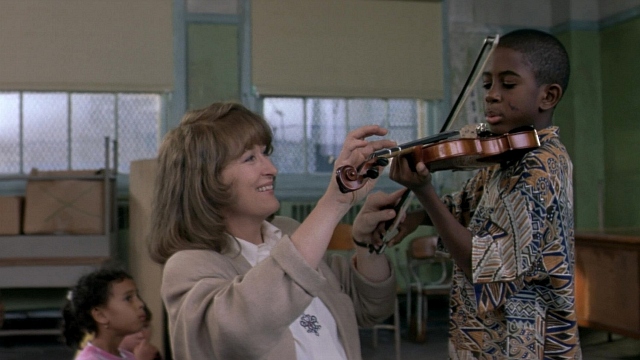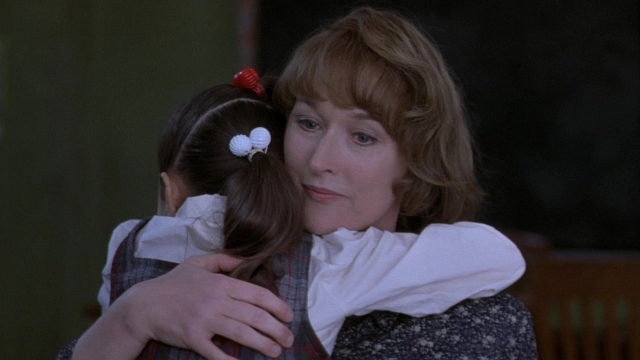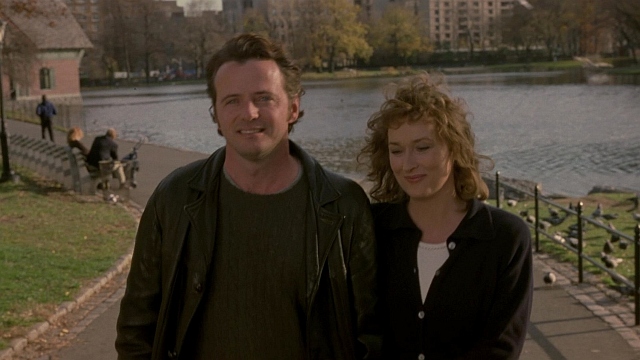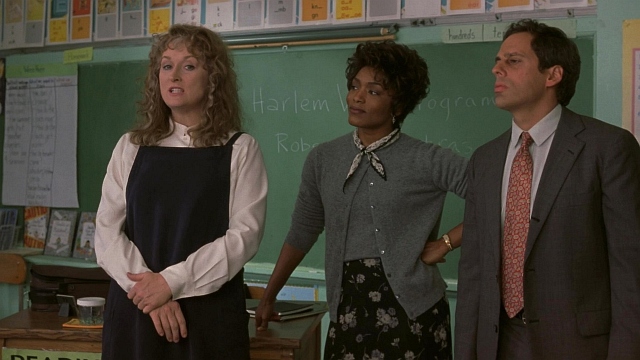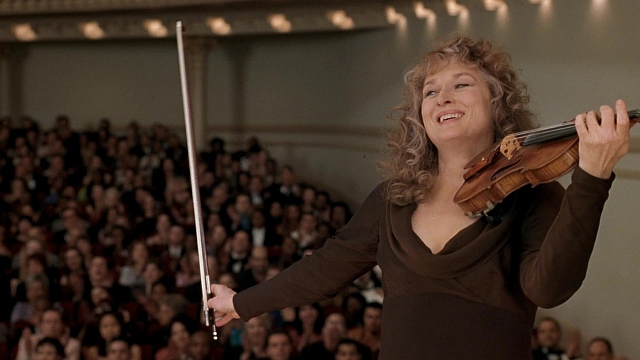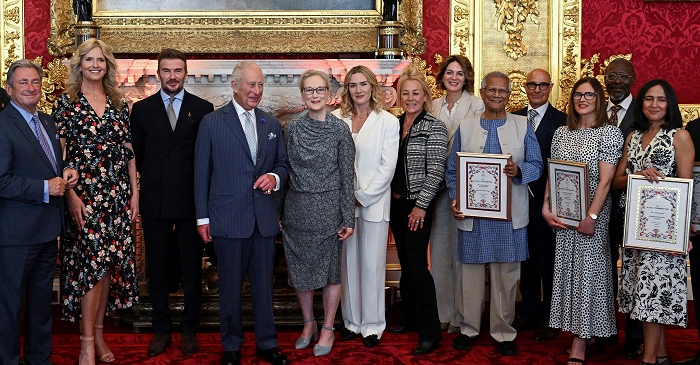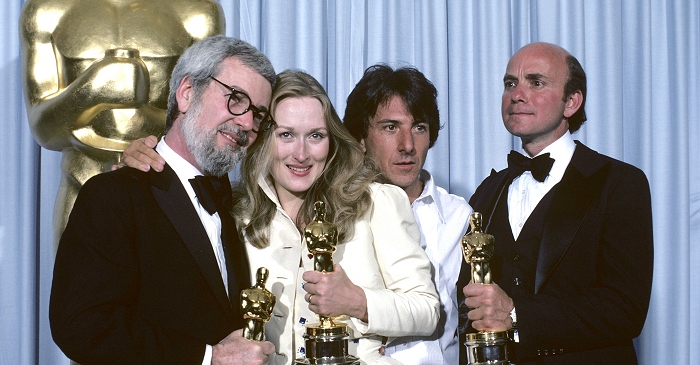|
Simply Streep is your premiere online resource on Meryl Streep's work on film, television and in the theatre - a career that has won her acclaim to be one of the world's greatest living actresses. Created in 1999, Simply Streep has built an extensive collection over the past 25 years to discover Miss Streep's body of work through thousands of photographs, articles and video clips. Enjoy your stay and check back soon.
|
Music of the Heart
October 29, 1999
· Miramax
· 124 minutes
|


There were a unique set of challenges involved in bringing this incredible true story to the screen. The first was convincing Guaspari, who still lives and works in Harlem, to trust her story to the film makers. Guaspari had already consented to one such project. Her program was the subject of the 1996 Academy Award-nominated documentary, “Small Wonders.” In fact, it was this documentary that inspired the film makers to embark on this project. “Harvey Weinstein approached me at a luncheon for all the nominated documentaries,” Guaspari recalled. “He asked if I would let them do a feature film on my whole story. I was leery. You don’t want to sell yourself to Hollywood. But when I met Wes and spoke more with Harvey, I was made to feel really confident and good. I wanted it to be legit, and it truly has been.” Finding the right actress to play Roberta was the next challenge. Not only would the role be demanding because of the depth of the character and the range of emotions she experiences, but because the actress would have to play the violin. Meryl Streep topped Craven’s wish-list, but again he worried that his history as a genre film-maker would create a barrier. Streep had not seen any of Craven’s films, but she heard him give an interview on her favorite radio program and was very impressed and intrigued by him. Unfortunately, because of her demanding schedule, she was forced to decline. A replacement was found in no one less than Madonna, who showed interest in bringing Roberta’s story to the screen. However, after creative differences with Craven, which resulted in Madonna’s departure, Meryl Streep was persuaded back, thanks to the tenacity of both Weinstein and Craven. The only problem remained that Streep had to learn to play the violin – within six weeks.
That came to me late. I had to beg them to give me some more time for the violin part of it. The gift was working with these children, who were endlessly inventive. It was like an acting primer; and it was the thing I didn’t expect. I was totally the boss! They didn’t listen to Wes Craven at all. He’d say, ‘Meryl, can you please…’ and I’d say, ‘Awrighawrightawright! Everybody shut up!’ And I thought, ‘Hmmm. Maybe I could direct!’ (Meryl Streep, Entertainment Weekly, March 2000)
Streep, aside from having the daunting task of learning the violin while acting like a professional, also had the burden of playing a real person. She found this to be particularly challenging. “Playing a real person carries with it a whole other set of responsibilities than you would have when creating a fictional character,” Streep continues, “So, I did as much research as I could and then I just sort of threw it away because I can’t think of the real Roberta. I had to make it our Roberta, our movie Roberta. The real woman is a sizable phenomenon of energy, inspiration, hard work, irascibility. I tried to capture little parts of her and put it together in the film.” No one was more excited to work with an incredible acting talent than film newcomer, Gloria Estefan, who had been looking to act for some time. “I was looking for a small role in a meaningful film.” Estefan knew she could learn a lot from Streep and she watched her carefully and did her best to learn as much as she could from her. “Streep is very giving and very supportive to everyone around her.” Estefan continues, “I just saw her do a scene with the audience and the camera wasn’t even on her and she did this amazing thing that just made everyone spellbound and right into what she was doing, and it’s a very giving thing for an actor to do. That’s why she is at the top of her game.”
“Music of the Heart” feels like a light version of “Dangerous Minds” plus Mozart. The true story is inspirational and well acted, but it’s not enough for a feature film of two hours. Many scenes and supporting characters only stretch the story – and while Robert’s relationship with her mother or the man she meets through a personal ad might be of importance for the character or the real person, it doesn’t add anything to the overall story. It’s not a bad movie though, because it has a good intent – and performances. Of all the actors, I found Angela Bassett very good in the role of the school principal. The film wasn’t received well by critics or audiences alike, I can only assume it was because of the above reasons. And of course there’s Meryl playing the violin as if she has done nothing else before. I would consider “Music of the Heart” not one of her best films, but it’s still above the average mainstream films. And I bet it was a delightful departure for Wes Craven.
☆ Academy Award – Best Actress in a Leading Role
☆ Golden Globe Award – Best Performance by an Actress in a Motion Picture (Drama)
☆ Screen Actors Guild Award – Outstanding Performance by a Female Actor in a Leading Role


